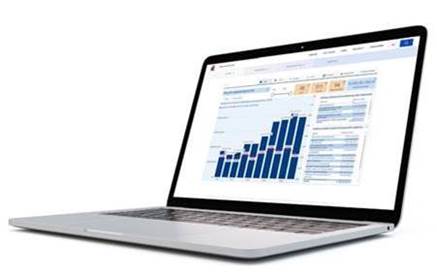International Development Cooperation
Iceland’s international development cooperation has a long history and remains one of the main pillars of Iceland’s foreign policy. By actively participating in development cooperation, Iceland seeks to fulfil its political, legal, and ethical obligations as a responsible nation in the international community.
Iceland‘s development cooperation is guided by the policy for international development cooperation for 2024-2028 which supports the vision of the United Nations‘ Sustainable Development Goals (SDGs) and the Paris Agreement.
Iceland's international development cooperation policy 2024-2028 on one page.
Emphases and Objectives
- Overarching goal: Poverty eradication, respect for human rights and improved living standards.
Human rights, gender equality, environmental and climate issues are both specific and cross cutting issues that are put at the forefront.
Emphases is on four thematic areas:
Human rights and gender equality (SDGs 5 and 10) – with emphasis on:
- Empowerment of women and girls,
- Improved civil rights,
- Improved legal and social protection of LGBTQI+ persons,
- Improved sexual and reproductive health and rights,
- Eradication of gender-based and sexual violence,
- Increased participation of men and boys in the fight for gender equality.
Human capital and social infrastructure (SDGs 3, 4 and 6) – with emphasis on:
- Improved education, learning environment and nutrition of children and adolescents,
- Improved access to basic health services, especially for mothers and children,
- Improved access to clean water as well as improved sanitation and hygiene facilities.
Climate affairs and natural resources (SDGs 7, 13, 14 and 15) – with emphasis on:
- Improved mitigation and adaptation capacity of societies,
- Increased use of and equal access to renewable energy,
- Protection and sustainable land use and restoration of habitats.
- Sustainable land use and restoration of habitats.
Humanitarian assistance and efforts towards stability and peace (SDGs 2 and 16) – with emphasis on:
In humanitarian assistance, the Government of Iceland will focus on the following objectives:
- Reduced hunger and improved food security,
- Protection and improved living conditions of refugees,
- Contributing to improved humanitarian access.
In efforts towards stability and peace, the Government of Iceland will focus on the following objectives:
- Strengthened social and civilian infrastructure,
- Well-functioning democracy and improved governance.
Implementation and partners
Iceland’s bilateral partner countries are Malawi, Sierra Leone and Uganda. Iceland supports the national development plans of the respective countries through partnerships with their governments, district authorities, international and local organisations, including UN agencies.
In terms of cooperation with multilateral institutions emphasis is placed on the World Bank, the United Nations Children’s Fund (UNICEF), the United Nations Entity for Gender Equality and the Empowerment of Women (UN Women), and the United Nations Population Fund (UNFPA). In the area of climate affairs, Iceland emphasizes cooperation with the Green Climate Fund (GCF), the Adaptation Fund and the Nordic Development Fund (NDF).
Key UN institutions in the field of humanitarian assistance and emergency response are supported, such as the Central Emergency Response Fund (CERF), the United Nations Office for the Coordination of Humanitarian Affairs (OCHA), the World Food Programme (WFP), and the Office of the UN High Commissioner for Refugees (UNHCR).
Collaboration and support to civil society organisations (CSOs) and the private sector in the field of development cooperation and humanitarian assistance is also important. Efforts are made to use Iceland’s expert knowledge, for example, in land restoration, fisheries, geothermal and gender equality through the UNESCO-GRÓ Centre for Capacity Development, Sustainability and Societal Change.
Icelandic Development Coopration on Twitter
Tweets by IcelandDevCoopThematic areas

Bilateral Cooperation
The overall goal of Iceland’s bilateral development cooperation is to reduce poverty and hunger and promote improved livelihoods, underpinned by human rights and sustainable development.

Multilateral Cooperation
Cooperation with multilateral organisations is a key component in Iceland‘s international development cooration and the Icelandic government provides support in the form of both funds and advocacy.

Humanitarian Assistance
Iceland‘s humanitarian assistance is aimed at protecting human lives and dignity and reducing the risk of suffering in crisis situations.

The Sustainable Development Goals
The UN development goals for sustainable development outline a plan of action for people, planet and prosperity.

Cross-Cutting Priorities
Human rights, gender equality and climate and the environment are cross-cutting priorities in Iceland‘s development cooperation policy.

Cooperation with Civil Society and NGOs
CSOs and NGOs play an important role in development cooperation and humanitarian assistance.

Private Sector Collaboration
Engagement of the private sector in development cooperation is important for efforts to promote sustained economic growth and decent jobs in low income states.

GRÓ - Centre for Capacity Development, Sustainability and Societal Change
GRÓ operates under the auspices of the United Nations Educational, Scientific and Cultural Organization (UNESCO).

Evaluations
Evaluations play a vital role in the assessment of the implementation, efficiency, and results of development cooperation, as well disseminating knowledge and lessons learned.
Contributions to international development cooperation
In 2021, contributions to official development assistance (ODA) amounted to 71.9 million USD, or 0.28% of gross national income (GNI). Iceland aims to increase its contributions to reach 0.35% of GNI in 2022. The Development Assistance Committee of the Organisation for Economic Co-operation and Development (OECD/DAC) publishes an overview profile of Iceland's development cooperation contributions.
The policy for international development cooperation for 2024-2028 is the overall framework through which all of Iceland‘s development cooperation and humanitarian assistance is carried out. Emphasis is placed upon results and efficiency, transparency, dissemination of information and education, and optimizing synergies within Iceland‘s development cooperation.
ODA will increase during the period of the policy from 0,35% of GNI in 2024 to 0,46% in 2028.
Overarching goal: Poverty eradication, respect for human rights and improved living standards
Four sectors: human rights and gender equality, human capital and social infrastructure, climate affairs and natural resources and humanitarian assistance and work towards stability and peace.
There are two cross-cutting priorities: human rights and gender equality, and the environment and climate.
Iceland‘s three bilateral partner countries are: Malawi, Sierra Leone and Uganda.
Main partner institutions in multilateral collaboration are: The World Bank, the United Nations Children’s Fund (UNICEF), the United Nations Entity for Gender Equality and the Empowerment of Women (UN Women), and the United Nations Population Fund (UNFPA).
In climate change there are three focus partners: the Green Climate Fund, the Adaptation Fund and the Nordic Development Fund (NDF).
Main partner institutions in emergency and humanitarian assistance are: the Central Emergency Response Fund (CERF), the United Nations Office for the Coordination of Humanitarian Affairs (OCHA), the World Food Programme (WFP), and the Office of the UN High Commissioner for Refugees (UNHCR). In addition Iceland cooperates with the UN Relief and Works Agency for Palestine Refugees in the Near East (UNRWA) and the International Committee of the Red Cross (ICRC).
The policy emphasises the role of Civil Society Organisations (CSOs) and the Private Sector in development cooperation in addition to Academia.
Finally, focus continues on training and capacity building of individuals as well as strengthening institutional capacity in developing countries through the Gender Equality Studies and Training Programme, the Geothermal Training Programme, the Land Restoration Training Programme, and the Fisheries Training Programme in Iceland.
- Iceland´s Policy for International Development Cooperation 2019-2023
- Evaluation Policy 2020-2023
- Code of conduct of the employees of the foreign service of Iceland
- Bilateral strategy
- Civil Society Organization Cooperation Strategy
- Communications & Knowledge Management Strategy
- Gender Equality Strategy
- Humanitarian Assistance Strategy
- Multilateral Development Cooperation Strategy
On October 1st, 2008, the Act on Iceland’s International Development Cooperation (121/2008) entered into force. The older Act on the Icelandic International Development Agency from 1981 then ceased to apply. On December 18, 2015, the Icelandic Parliament approved amendments to the Act.
The objective of the Act on Iceland’s International Development Cooperation is to achieve a holistic vision of the policy area and enable Icelandic authorities to better operate according to international charters and commitments, including the founding charter of the United Nations and the UN Sustainable Development Goals.
International development cooperation is ever evolving. International charters and resolutions increasingly demand accountability and reliability of actors working in development. Therefore, the Act stipulates that operational modalities of development cooperation follow best practices, recognized methods, rules and standard procedures of the international community. In the Act, emphasis is placed on:
- Transparency in the dissemination of information and execution of projects
- Evaluation of results
- Regular monitoring and evaluation
- Integrity in spending and managing finances
According to the Act on Iceland’s International Development Cooperation, a Committee on Development Cooperation shall be formed. The Act specifies the advisory capacity of the Committee in policy making decisions pertaining to Iceland‘s international development cooperation as well as follow-up on its execution. The Committee shall, for example, discuss the policy for international development cooperation and its action plans, development cooperation funding allocations, choice of partner countries, Iceland‘s participation in the work of multilateral organisations and results in development cooperation.
The Minister for Foreign Affairs appoints members of the Committee and their substitutes for four-year periods as follows:
- The chairperson of the Committee is appointed without nomination and shall have expert knowledge on development and experience in the field.
- Each Parliamentary party shall nominate one member.
- Five members shall be appointed in consultation with the partnership group of Icelandic non-governmental organisations involved in international humanitarian aid and development cooperation.
- Two members shall be appointed in consultation with the standing committee of the Rectors of Higher Education Institutions.
- Two members shall be appointed in consultation with the private sector.


